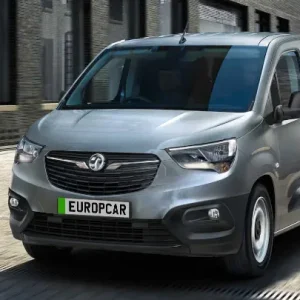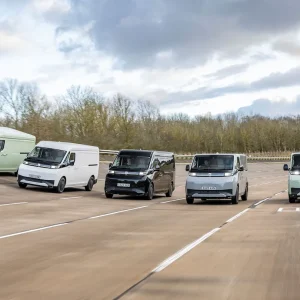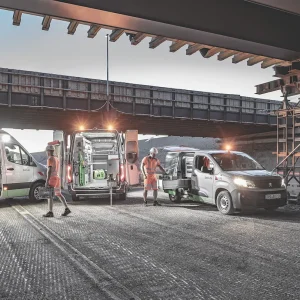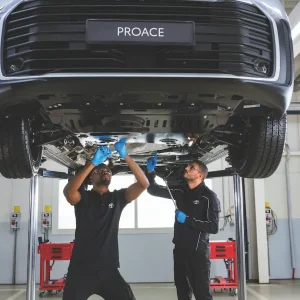During the last two years manufacturers have been loading up their vans with the sort of safety kit previously reserved for their car ranges.
The fact that Euro Ncap has now brought light commercial vehicles, albeit the passenger carrying ones, into its crash testing regime has no doubt concentrated the major players’ efforts on raising standards.
This is good news for van drivers but also has implications for rental companies when deciding which models to stock and for fleet operators in choosing the best options for their staff.
Gareth Jones, managing director of Dawsonrentals/vans says customers are now far more aware of the availability of safety equipment such as Lane Keeping Assist, for example, which means van hirers need to make sure they can offer it.
He says the introduction of new safety technologies affects long-term customers’ purchasing decisions more than short-term clients because they need to make sure their vans are sufficiently equipped for several months without having to be taken off the road to have more kit installed.
Europcar’s UK boss Ken McCall agrees: “When looking at short term rental, hirers will often opt for vehicles in lower [specification] vehicle groups in order to keep costs down. This may not be the case when procuring their own fleet which they see as a more permanent solution.”
Jones acknowledges that investing in vans with extra safety equipment entails a major capital uplift for fleets compared to choosing base models or lower-priced LCVs with less kit on offer. But he argues the hike in upfront costs should be weighed against “benefits such as better duty of care and overall improved corporate social responsibility for the business”. Likewise he says the move to make Electronic Stability Control (ESC) a legal requirement on new vans may increase purchase prices and thus flow down into rental rates, but will also provide product diversity and improve customer service.
Gary Dean, UK technical support manager at Northgate Vehicle Hire, welcomes the enshrinement of ESC in law.
“The mandatory instalment of ESC systems is a hugely welcomed safety feature in vehicles that will dramatically reduce accidents and injuries to drivers and pedestrians,” he says.
“It is well documented by the Vehicle Safety Research Centre at Loughborough University that vehicles equipped with ESC are 25% less likely to be involved in a fatal accident than vehicles without it.”
Jones claims offering LCVs with the latest safety aids cuts down on the number of insured and non-insured incidents and also increases customer loyalty.
He says daily driver safety checks and defect reports are now commonplace and adds there is an obligation for suppliers to educate customers on legal safety standards.
McCall says; “Europcar vehicles have regular safety checks which are, typically, undertaken every time a vehicle is returned when a rental has finished.”
But he adds: “Recent legislation has not increased either the number of checks undertaken nor added to the complexity of these checks.”
McCall observes many customers have aligned their van safety needs to mirror those within their passenger car requirements and says Europcar has seen an increase in the number of requests for driver and passenger airbags, built-in Bluetooth and reversing sensors.
He says the blind spot mirror introduced pioneered by Renault is also proving popular.
“Vauxhall and Renault are building the Vivaro and Trafic respectively with additional driver safety and comfort in mind as well as addressing the fact that vans are fast becoming mobile offices,” says McCall.
“By incorporating these types of vehicles into our fleet, Europcar has secured a number of new accounts both from the SME sector and a number of large blue chip companies.”
Jones believes that although in-cab cameras are in demand for “incident management” purposes due to the growth of the “claim blame” culture the emphasis should shift from technology that centres on “what happened” to focus on systems that prevent incidents happening in the first place. He advocates the use of technologies to improve visibility and traffic awareness, such as lights, mirrors and blind spot alerts, coupled with “avoidance strategies” to enable drivers to reduce risk.
Jones stresses: “We purchase the vehicles we feel are equipped with the best safety features. It’s a case of keeping abreast with the market so when there’s change orders can be made ahead of the market rather than after it.”
McCall asserts: “Telematics is the new evolution in van safety management. From 2015 many manufacturers will make the production of vans with telematics standard giving fleets greater visibility of drivers’ behaviour such as excessive speed, excessive driving hours and excessive breaking or acceleration.”
He believes telematics will also give businesses like Europcar better accident and damage notification, real time breakdown diagnostics and the ability to report key information to breakdown providers in order to reduce vehicle downtime.
In addition he says that as the law surrounding mobile phone usage tightens, the need for Bluetooth technology will become critical.
In conclusion, Jones says: “By concentrating on providing a better working environment with improved safety and efficiency features, then we can make van drivers, who are already statistically the safest drivers on the road even safer”





